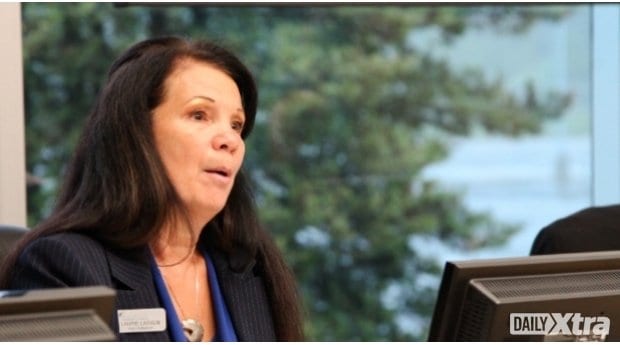The British Columbia school district that once fought all the way to the Supreme Court of Canada to avoid adding gay-friendly books to its classrooms adopted an anti-discrimination policy that specifically addresses homophobia Nov 14.
“Surrey came under a lot of fire a few years ago — the poster district for homophobia,” says activist Ryan Clayton. “Now, they’re ahead of half of BC.”
The policy, adopted unanimously by Surrey school district trustees, says school community members who identify as lesbian, gay, bisexual or transgender are often targets of discrimination or exclusion.
It says all members of the Surrey school district share responsibility for upholding the values in Canada’s Charter of Rights and Freedoms and for supporting students and staff in addressing and facing the unique challenges faced by queer youth.
“Homophobic and/or transphobic comments, discrimination, bullying, and attacks are demeaning to all students, parents or guardians and employees regardless of their actual or perceived sexual orientation,” the policy says.
“The school district will not permit or tolerate any homophobic and or transphobic behaviour such as harassment, intimidation, discrimination or bullying, whether by commission or by failing to act to end such behaviour,” it continues.
“Staff will respond to all incidents and provide support and assistance to those who are the intended or unintended targets of such behavior,” the policy says.
Through the policy, the board commits to creating “safe, caring, inclusive and welcoming environments to our LGBTQ staff, students and families.”
School board vice-chair Laurie Larsen, who introduced the original motion to pursue the policy change, says the paragraphs addressing homophobia are the most important part of the new policy.
“It’s a very complex issue, and we’ve taken time to ensure it’s decisive and it has depth and it’s workable,” Larsen says. “I’m so proud of the direction the board has taken.”
The policy covers a range of discrimination, but Larsen says homophobia is “the central one and the most needed.”
Its passage follows the board’s passage of an anti-homophobia regulation in June. Trustees faced criticism then for sidestepping the establishment of a stand-alone anti-homophobia policy in favour of folding it into other regulations.
Gioia Breda, second vice-president of the Surrey Teachers Association and a member of the Pride Education Network, belongs to the working group that developed the policy. She calls its passage historic and says it provides the philosophical framework for the regulations passed in June.
“Surrey’s moving forward,” she says. “We’re working to create environments that are both inclusive and protective of LGBT human rights.”
Surrey’s new policy means that 23 of BC’s 60 school districts now have stand-alone anti-homophobia policies or anti-discrimination policies that specifically address homophobia.
“It’s amazing,” Breda says. “I was really glad to be part of the process.”
The board will now move to an implementation phase that will include looking at curricula and resources for teachers, administrators, counsellors and professional development.
The policy says those under its jurisdiction will comply with all federal, provincial, municipal and board laws and regulations; value and encourage learning environments that are inclusive and respect diversity; treat one another with respect; refrain from participating in or encouraging acts of violence; show care and regard for school property and that of others; help those in need and respect those in authority.
It specifically says schools should be free of acts of harassment, threats, cyberbullying, intimidation, verbal or written abuse, homophobia or other discrimination based on, among other things, sex, gender, sexual orientation, gender identity or expression.
The policy says each school will establish a code of conduct, including statements of expectations regarding student behaviour.
“It’s really clear. It’s really straightforward,” Clayton says.
In 1997, citing parents’ religious concerns, the Surrey school board refused to approve three books featuring same-sex families that teacher James Chamberlain wanted to use in his kindergarten classroom.
The battle eventually reached the Supreme Court of Canada, which ordered the school board to reconsider the books based on the same secular, curriculum-based criteria it would apply to other books.
Larsen says Surrey trustees weren’t ready for an anti-homophobia policy in previous years. “They are now,” she says. “We thought the time was right, the board was right, the unions and the administration were in the right place.”

 Why you can trust Xtra
Why you can trust Xtra


